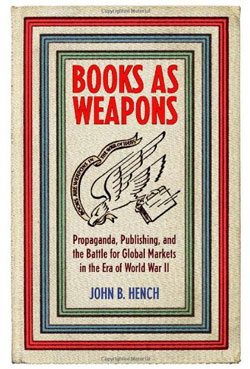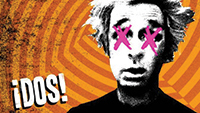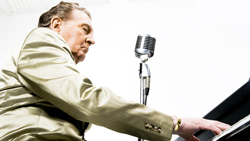Book history scholar John B. Hench delivered a lecture entitled “Never Far From Books,” for students and faculty in Wilson Hall last Wednesday to educate on the growing and changing field of book studies.
Hench, 70, now retired, was the Vice President Emeritus for Collections and Programs at the American Antiquarian Society (AAS), a national research library of pre-twentieth century American historical literature. Hench is also the author of the book “Books as Weapons: Propaganda, Publishing, and the Battle for Global Markets in the Era of World War II,” as well as an avid book collector with a collection of over 1,500 pieces of literature.
This was the second annual event in the lecture series “Ink and Electricity: Advancing Liberal Learning in the Digital Age,” which was sponsored by the Humanities Department at Monmouth University. The event was free of charge and open to the public.
Students and faculty packed into the intimate yet ornately decorated and gold-trimmed Wilson Hall room, filling every elegant leather chair in the process and then some. Dr. Kristin Bluemel, Wayne D. McMurray-Helen Bennett Endowed Chair in the Humanities and professor of English, coordinated the event and gave a brief introduction before the lecture began.
Hench, who was accompanied by a large stack of worn, yellow-tinted books, took a highly autobiographical approach to his lecture. He shared with the audience how his father’s prized book collection, his studies at Lafayette College and Clark University, and many years of work for the American Antiquarian Society influenced his passion for collecting and researching books and book history.
“Throughout my life, I have never been far from books – lots and lots of books, actually,” said Hench. “By the time my father died in 1965, most nooks and crannies in our house were filled with books.”
Hench also discussed items of his research on World War II-era literature, much of which, he said, was used to write “Books as Weapons.” To illustrate his research, Hench presented a number of vivid examples to the audience, including a large, dark green children’s picture book called “Jerry the Jeep,” and an old GI magazine with a seductively posed female model on the cover.
Much of his lecture, however, focused on the shift from print literature to digital, and how there’s room for both in today’s literary world. “I still love books and I expect the book form that we have known for centuries to not entirely disappear anytime soon,” said Hench. “That said, let me state for the record that I really like my Kindle.”
Hench feels digital literature, including scanned copies of physical books and downloadable books for handhelds, have brought about many advantages to the world of research and book collecting, stating that computers have allowed for more efficient organization of literature, and has made many print sources more easily available and accessible to just about anyone, anywhere.
However, Hench stressed we should not throw out those musty old print books just yet. “People may not realize this, but microfilm and digital images may actually not last as long as these old books themselves,” said Hench. “It may be necessary eventually to recapture the pages by technology not yet envisioned, and the originals will presumably still be on the shelves at the AAS.”
Most apparent from the lecture, however, was Hench’s undeniable passion for books, as he vigorously emphasized the rush he gets while in library reading rooms, book stores and even dingy secondhand book shops. “A few years ago in London I reviewed an exhibition of the changing typographies of Penguin Books over the decades and almost swooned,” Hench said humorously.
After 45 minutes, Hench concluded his lecture with a 15 minute Q&A session for inquiring students asking about his World War II research, children’s literature, and how he’s managed his own collection over the years.
Kaitlin LaRose, 21, senior English major, attended for extra credit in a class, but ended up really enjoying Hench’s lecture. “I thought Mr. Hench was a great speaker, and the way he talked about books was almost mesmerizing because you could just tell how much he loves them,” said LaRose.
Argyro Sourias, 22, graduate student of rhetoric, identified with Hench’s passion for physical paper books. “I stand with my opinion that while digital media is a great technology for us, there are certain things that it just can’t recapture,” said Sourias. “There’s no better feeling than holding the book and seeing the dog-ear you made, and that doesn’t translate with digital books.”
Following the lecture, Hench hoped that students would gain “A more general overview of what the field of book history is and may not be also.” He wanted students to see how pursuing graduate studies in the humanities can lead to careers other than teaching, such as working in a research library like the AAS.
Hench also hopes a few students caught the book collecting bug from his talk. “I think that book collecting is a kind of a discipline, and it can be enormous fun,” said Hench. “It’s never been easier to find books thanks to The Internet than it used to be, and it really can get you into something entirely new to you.”
PHOTO TAKEN pastispresent.org



